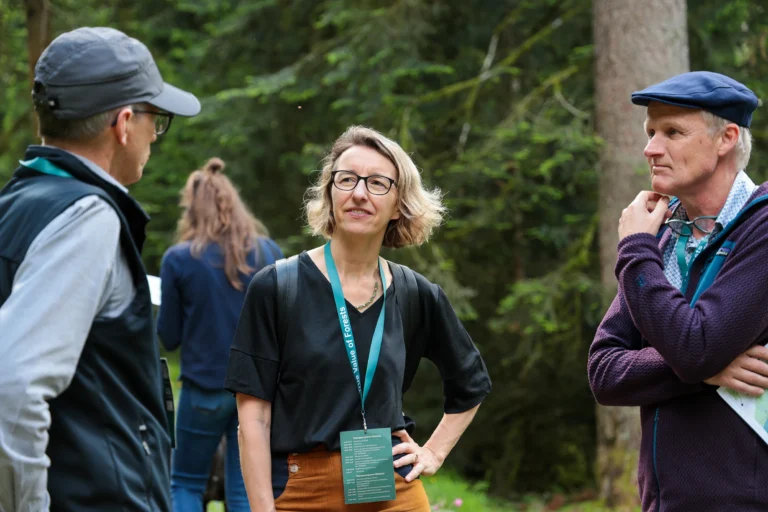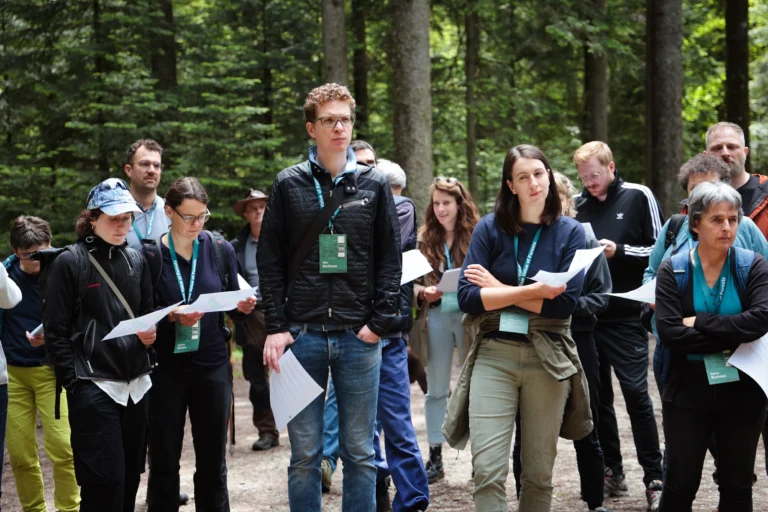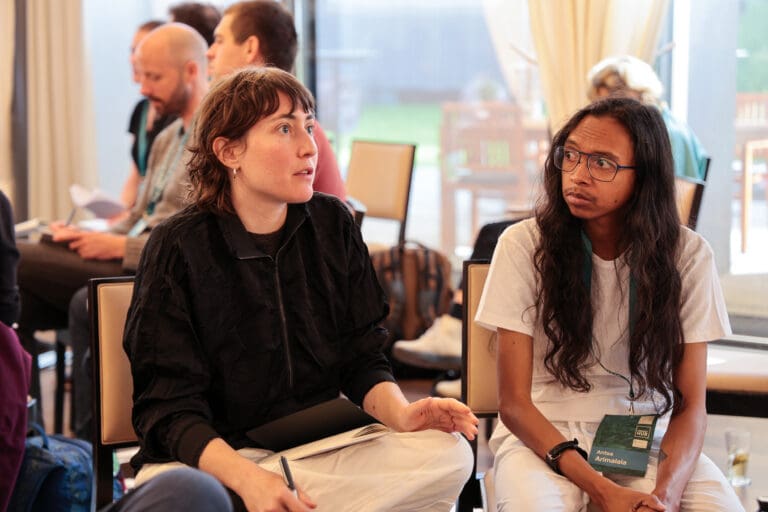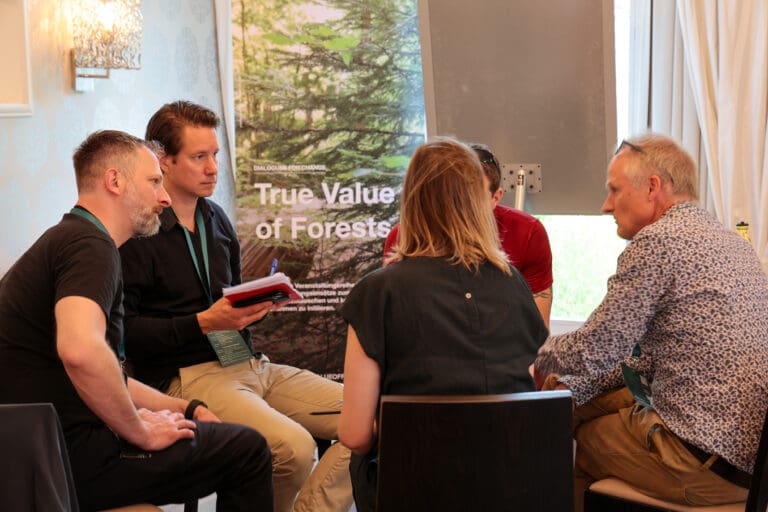The True Value of Forests: insights from Switzerland
In the Emmental Valley in Switzerland, 35 experts from diverse sectors came together to address the pressing issues around the value of forests and how to balance their role in supporting human needs with environmental health, particularly in the context of Switzerland’s Energy Policy 2050.
- Written in collaboration with
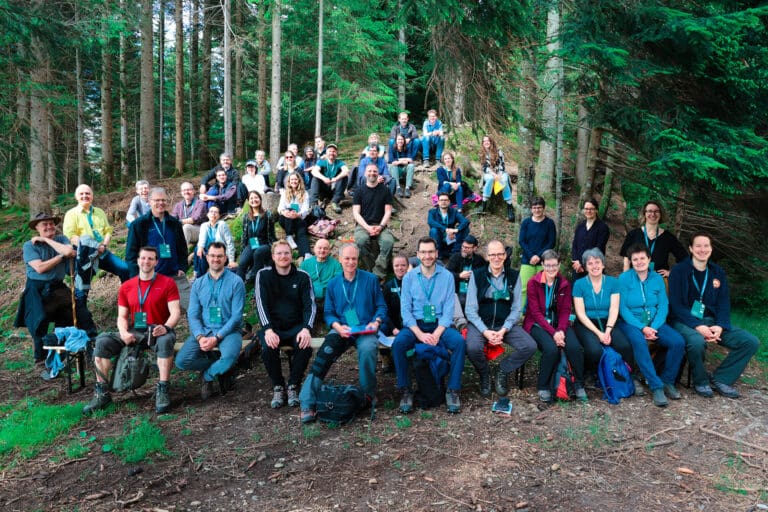
In June, the Emmental valley in the Swiss Canton of Bern became the focal point of an important discussion on the true value of forests. Hosted by the Wyss Academy for Nature and the Office for Forestry and Natural Hazards of the Canton of Bern, the dialogue brought together around 35 experts and representatives from various sectors including civil society, business, science, politics, administration, and the arts. The event aimed to address critical questions about forest value, land use, and the integration of forest conservation with Swiss energy policies. Here are the key insights from the dialogues:
Balancing land use and renewable energy
A growing tension is emerging between land use for conservation and the demands of renewable energy development. Switzerland’s Energy Policy 2050 highlights the need for wind turbines, intensifying the pressure on its stringent regulations that currently ban forest clearance. There is an urgent need for integrated land use strategies that balance renewable energy objectives with forest conservation, ensuring the protection of forest ecosystems while addressing energy requirements.
Sustainable utilisation of wood
The sustainable utilisation of wood is a critical aspect of forest management. An extended tour of the Toppwald forest showcased practices by the state forest service of the Canton of Bern, which focus on balancing timber production with forest rejuvenation and nature conservation. Despite the potential for increased economic use of forest wood, challenges such as the trade in CO2 certificates, unprofitable timber production, and opposition to wood utilisation complicate the situation. Moving forward, addressing these challenges is essential for achieving a balance between economic benefits and ecological sustainability.
Navigating diverse interests in public forests
The dialogues revealed the complex and often conflicting interests associated with public forests. Participants discussed how various societal groups—ranging from recreational users like joggers to professionals like botanists—have different and sometimes divergent needs from forests. This diversity creates a need for effective mediation by foresters, who must navigate these varied interests to manage public forests equitably. It is important to consider all stakeholder perspectives to create balanced and inclusive forest management strategies.
Developing solutions together
Creating actionable solutions can address the complex issues facing forest management. Ideas developed during the dialogues included new business models for the timber industry, therapeutic forest initiatives for hospitals, awareness campaigns for forest conservation, and marketplaces for biodiversity credits. The collaborative nature of the discussions, involving diverse groups, resulted in innovative and practical solutions that are more likely to be sustainable and impactful.
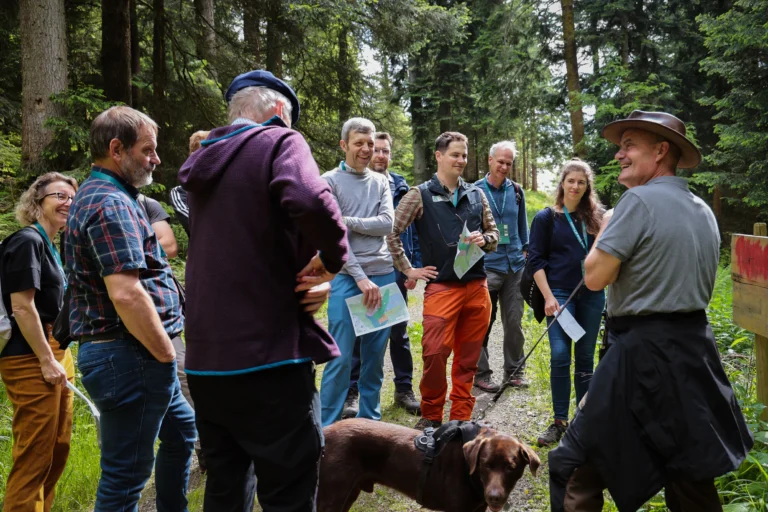
Collaboration and future projects
The dialogue concluded with a strong sense of optimism, as participants expressed a willingness to continue collaborating on the ideas generated. The formation of working groups to further develop project ideas demonstrated a commitment to translating dialogue outcomes into tangible actions. This collaborative spirit is seen as a positive step towards achieving long-term solutions for forest management and conservation.
Overall, the Dialogue with Purpose in the Emmental Valley highlights the need for a nuanced approach to forest management that balances ecological, economic, and societal needs. As the global series of dialogues continues, the insights gained from Switzerland will contribute to a broader understanding of how to value and manage forests in a way that benefits both people and nature.
The Dialogues on the True Value of Forests are organised by the Wyss Academy for Nature in collaboration with the Impact Hub Network.
Unleash your impact potential today
Join our free global membership for the latest news, resources, and inspiring stories of entrepreneurial impact. Sign up now and ignite your journey towards making a difference.
You also might like

World Food Day: Why food systems matter for our future
World Food Day: Why food systems matter for our future

Beyond the numbers: Celebrating the Makers who drive impact
Beyond the numbers: Celebrating the Makers who drive impact

